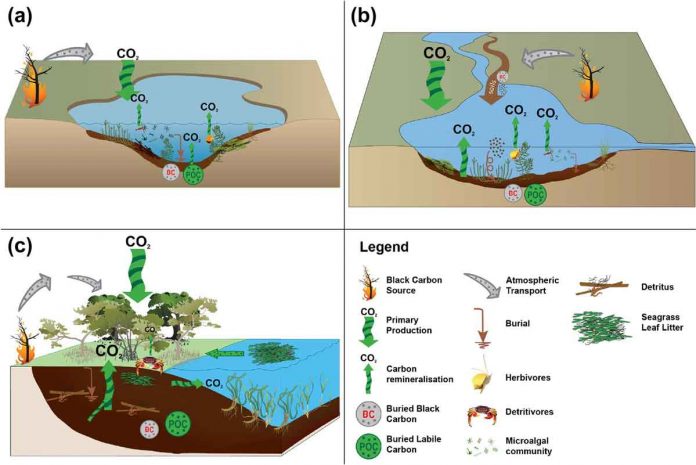University of Tasmania (UTAS), Nanjing Institute of Geography and Limnology of the Chinese Academy of Sciences (NIGLAS) and Universiti Malaysia Sabah (UMS) researchers have revealed that the current mitigation concepts for greenhouse gas emissions and measurements are not what they seem.
The study was published in Wetlands. Accumulation of buried organic carbon down through the sediment column is not an accurate measure of carbon sequestration. As it is not equivalent to sequestration as net ecosystem production (NEP) for open systems.
The sediment organic carbon accumulation down inland and coastal wetlands have always been regarded as a convenient means of measuring trends and average rates of sequestration over climatic scales.
What is required from the sediment record is not the total organic burial, but the burial rate of what remains of the wetlands plant production from the amount of the labile organics inputs consumed. The remains of those recalcitrants inputs are largely black or pyrogenic carbon.
Scientists modified a general decomposition model to hindcast the original input rate and to project what remains for all organic sources after 100 years of burial.
They found that carbon accumulation was on average 33.5 and 7.2 times greater than their respective sequestration rates for a mangrove and a seagrass ecosystem.
The study also reveals that sequestration relative to its non-canopy replacement or alternative stable state is not included for voluntary or compliance carbon markets. Only the rate of loss and gain of organic stocks for wetlands are likely disturbed or restored.
This limitation would otherwise undervalue the mitigation potential of wetland systems. The rate of gain in sediment stocks for a restored system is similarly constrained as a mitigation service by consumption and decomposition of those external organic inputs.

